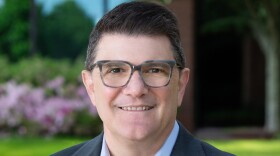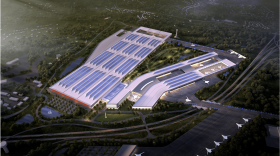Business leaders, bankers and policy-makers gathered in Research Triangle Park for the annual Economic Forecast Forum sponsored by the North Carolina Bankers Association and the North Carolina Chamber.
Economists say North Carolina has a lot to be proud of. It no longer has one of the highest unemployment rates in the country or the highest income tax and corporate tax in the southeast.
Governor Pat McCrory told the crowd of 800 at the Sheraton Imperial Hotel, wages are up and so is job growth.
“We’ve seen an incredible rebound in the economy in North Carolina. In almost every sector of business we have seen almost double digit increases," said McCrory.
The state economy has also experienced an eight percent increase in manufacturing and a six percent jump in construction.
"Which we would have never dreamed of three or four years ago," said McCrory.
Like in previous years, most of the good news is in large metro areas, except for Hickory and Fayetteville, which lost jobs.
McCrory said one of the challenges facing the economy in struggling parts of the state is a "skills shortage," especially in IT, construction, welding, electricians and in health care.
Still economists say 2015 was a banner year for the state and they expect even better economic results in 2016.
NC State Economist Mike Walden says North Carolina’s job growth numbers out-paced the nation. And the labor force grew dramatically.
“We grew six times faster in terms of our labor force, which means people coming in looking for work. People moving from other states here. That is one of the reasons our unemployment rate actually went up for a while in summer and fall. But overall we moved ahead," said Walden.
Walden says he sees "no" recession for 2016, better jobs, and continued economic growth.
"The main reason I'm saying that is a technical point called household formation," said Walden. All of those young people that graduated from college and did not get a job and lived in their parent's basement, I think they are going to start to get jobs and increasingly move out."
Harry Davis is chief economist for the North Carolina Bankers Association and Professor of Finance at Appalachian State University. He says the jobs will come.
“We’ll grow around 90,000 to 100,000 jobs this year. That will push the unemployment rate down to the lower 5.2, 5.3 percent, something like that, which is a much better rate than we’ve got right this minute," said Davis.









